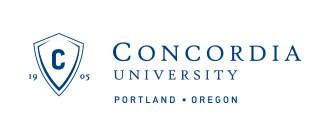Develop the competencies to help youngsters acquire exceptional reading and writing skills by participating in a program such as Concordia University Portland's Master of Education (M.Ed.) in Curriculum and Instruction with a concentration in Reading. For information on what this online program has to offer, continue reading.
<h2 id="section---FrequentlyAskedQuestions">Frequently Asked Questions</h2>
<h3 id="section---WhatKindOfProgramIsIt">What Kind of Program Is It?</h3>
<p>The online Master of Education in Curriculum and Instruction in Reading program at Concordia University Portland was designed expressly for educators who teach elementary through secondary general education classes. When you enroll, you'll be able to learn to implement literacy strategies, perform assessments, and evaluate the progress of your pupils. You can also explore current techniques in reading instruction. It may take about one year to conclude all courses for the Reading concentration program, which is offered entirely online. When you have completed your studies, you'll have the option of expanding your credentials to include a separate reading instruction certification.
</p>
<h3 id="section---WhatAreThePrerequisites">What Are the Prerequisites?</h3>
<p>This program is intended to benefit experienced educators who may want to hone their reading instructional skills and, ultimately, obtain a state reading specialist endorsement. You should have a bachelor's degree prior to enrollment and have a GPA of 2.8 or above. All applicants to Concordia University Portland programs must have earned a high school diploma or equivalent. In addition, applicants must submit two recommendation letters, a letter of intent, and a resume.
</p>
<h3 id="section---WhatAreTheCourseRequirements">What Are the Course Requirements?</h3>
<p>Capstone courses, reading concentration subjects, and core course requirements make up this M.Ed. program. You'll be able to begin a new course at five-week intervals.
</p>
<p><u>Professional Core Requirements</u>
</p>
<p />
<table border="1"><tr><th>Course Code </th><th>Course Name</th></tr>
<tr><td>EDGR 502 </td><td> Developing Character through the Curriculum</td></tr>
<tr><td>EDGR 535 </td><td> Theories of Teaching and Learning</td></tr>
<tr><td>EDGR 595 </td><td> Community of Learners</td></tr>
<tr><td>EDGR 601 </td><td> Educational Research</td></tr>
<tr><td>EDGR 602 </td><td> Contemporary Educational Thought</td></tr>
</table><p><u>Personalized Reading Strand</u>
</p>
<p />
<table border="1"><tr><th>Course Code </th><th>Course Name</th></tr>
<tr><td>EDRD 551 </td><td> Diagnosis and Assessment of Reading</td></tr>
<tr><td>EDRD 552 </td><td> Young Adult and Children's Literature</td></tr>
<tr><td>EDRD 553 </td><td> Advanced Techniques for the Teaching of Reading</td></tr>
<tr><td>EDRD 554 </td><td> Current Issues in Literacy</td></tr>
<tr><td>EDRD 555 </td><td> Organization / Management of School Reading Programs</td></tr>
<tr><td>EDGR 698 </td><td> Action Research - Capstone</td></tr>
</table><h3 id="section---WhatCouldIDoAfterGraduation">What Could I Do After Graduation?</h3>
<h4 id="section---CareerOpportunities">Career Opportunities</h4>
<p>Program graduates can pursue employment in areas such as reading curriculum development or educational administration. If you'd like to continue teaching, you might pursue the following careers:
</p>
<ul><li>Reading teacher
</li><li>Reading curriculum specialist
</li><li>Reading instructional coordinator</li></ul>


.svg)


